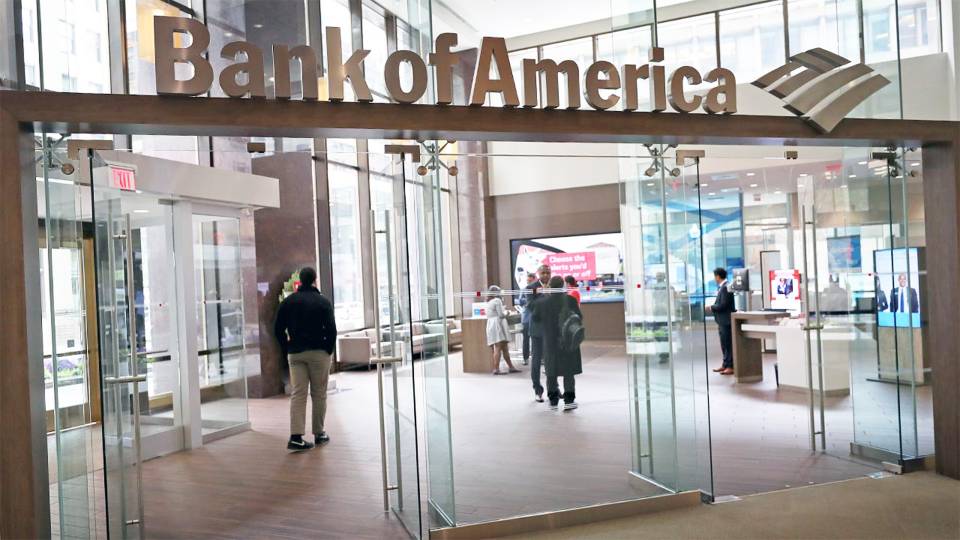Congress Approves Plan to Roll Back Post-Financial-Crisis Rules for Banks
The House on Tuesday passed a plan to roll back banking regulations passed in response to the 2008 financial crisis, sending the bill to President Trump to sign.
The measure leaves the central structure of the post-financial-crisis rules in place, but it would make the most significant changes to weaken the Dodd-Frank banking regulations since they were passed in 2010. It would exempt some small and regional banks from the most stringent regulations, and also would also loosen rules aimed at protecting the biggest banks from sudden collapse.
The measure is nearly certain to become law after its passing in the House, 258 to 159, on Tuesday with nearly all House Republicans and 33 Democrats voting for it. The Senate approved the bill in March with bipartisan backing, and White House officials said that Trump plans to sign it in the coming days.
The bill’s supporters say it provides needed relief for community and local banks withering under Washington’s regulations. But critics charge it opens the financial system back up to the abuse and risky behavior that brought the U.S. economy to its knees a decade ago — and does so at a time when financial firms are posting record profits.
The final measure represents a compromise between Trump, congressional conservatives and moderate Senate Democrats. The bill leaves major pieces of post-financial-crisis rules in place, and it does not touch the Consumer Financial Protection Bureau, a watchdog agency created after the crisis.
Trump had vowed to “do a big number” on the 2010 Dodd-Frank Wall Street Reform and Consumer Protection Act, and some House Republicans had hoped to repeal the law entirely — or at least make major changes to rein in the watchdog agency.
The legislation remained in limbo for some weeks after Senate passage, as Rep. Jeb Hensarling (R-Tex.), chairman of the House Financial Services Committee, held out for changes that would, in some cases, pull back regulations even further. But senators warned repeatedly that sending the legislation back to the Senate could end up killing it.
Senators had assembled a rare bipartisan coalition to pass the bill by winning support from 17 Democrats, including a half-dozen who are up for reelection in November in states Trump won. Aside from must-pass spending bills, the banking bill stands as the sole example of bipartisan legislation on a major issue in the Senate since Trump became president.
But the debate split Senate Democrats and at times grew divisive and personal as liberals, including Sen. Elizabeth Warren (D-Mass.), attacked their colleagues who were supporting the bill. It was an experience Senate Democrats were loath to repeat, and they joined with Senate Republicans and White House officials in encouraging Hensarling to yield on his demands.
In the end, Hensarling was satisfied by a commitment from Senate Majority Leader Mitch McConnell (R-Ky.) to bring up an additional package of bills that Hensarling’s committee has passed, though analysts give such a package slim chances of passing.
Former congressman Barney Frank (D-Mass.), one of the 2010 measure’s authors, said that he opposed the regulatory rollback, but it does not undo the rules he helped pass nearly a decade ago.
“This is not a ‘big number’ on the bill,” Frank said in an interview. “It’s a small number.”
Hensarling has said much the same, telling reporters that while he wished that the legislation would have gutted Dodd-Frank, it falls short of that goal.
Nevertheless, Hensarling touted the bill during floor debate Tuesday.
“This is the most pro-growth banking bill in a generation,” he said. “Today is an important day in the history of economic opportunity in America.”
Under the bill, banks with more than $50 billion in assets would no longer be automatically subject to the toughest federal regulations, including a yearly stress test to prove they could survive another onslaught of economic turmoil. The bill would raise that threshold to $250 billion in assets, potentially allowing several high-profile financial institutions, including American Express and Ally Financial, to escape the extra regulatory scrutiny.
The legislation would also exempt banks with less than $10 billion in assets from the “Volcker rule,” which bars banks from making certain risky wagers with their own money. Small banks will also be exempted from a Dodd-Frank requirement that they report more detailed data on borrowers. The industry has complained that both regulations are too cumbersome and time-consuming.
How the bill will reshape the financial sector is difficult to forecast, and critics and supporters offer radically different predictions. Supporters say the measure’s benefits are limited almost exclusively to small and regional banks. Critics challenge that argument, noting a Congressional Budget Office assessment that there’s about a 50 percent chance that behemoths JPMorgan and Citibank could take advantage of provisions aimed at helping smaller firms.
Big banks still must undergo periodic “stress” tests to prove they could withstand another financial calamity. But the likelihood that a big bank would fail, though still small, would be “slightly greater under the legislation,” the CBO said in March.
“Ten years ago, Wall Street almost destroyed our economy,” said Sen. Sherrod Brown (D-Ohio), who led opposition to the legislation in the Senate. “Now bank profits are up. . . . And now they want more, because Wall Street always wants more.”
Banks reported $56 billion in profits during the first quarter of 2018, up 27.7 percent compared with the same period last year, the Federal Deposit Insurance Corporation said Tuesday. Even without the corporate tax cuts that Trump and congressional Republicans passed last year, the banks would have still reported a 12 percent jump in quarterly profits, to $49.4 billion.
Both figures surpass the industry’s previous record for quarterly profits, the $48.1 billion the industry posted during the second quarter of 2017.
For the more than 5,000 community banks in the industry, profits rose 17.7 percent, to $6.1 billion, during the first quarter, according to the data.
By raising the asset threshold to $250 billion, the number of banks subject to heightened regulatory scrutiny would fall from 38 to 12 under the legislation passed Tuesday.
The bill is expected to unleash a rush of industry consolidation as some banks see an opportunity to get bigger without incurring additional regulatory scrutiny.






















